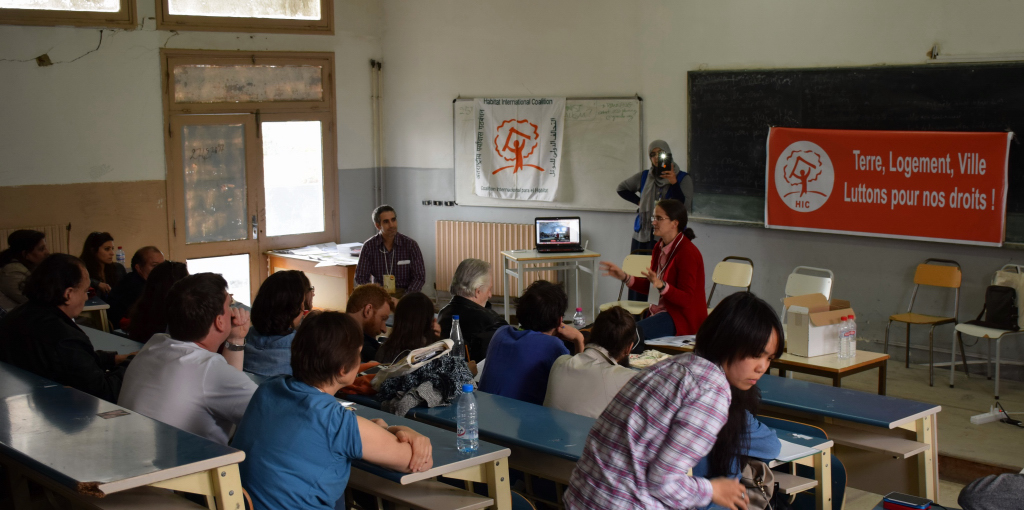
This event featured focused and guided
discussion on civil society (CS) expectations and proposals for the Third
United Nations Conference on Housing and Sustainable Urban Development (Habitat
III) and its preparations. The event traced the evolution of the Habitat I
& II processes, concepts and commitments of states and UN Habitat (the
United Nations Human Settlements Programme). The event involved a topic that is
a concern for many civil society actors working on issues of habitat, and had
also a focus on the state of national reports that states are preparing. The
role of CS in these reports was part of the discussion. It was also the
opportunity to listen to a variety of CSO actors and their proposals.
The event started with an introduction
by Lorena Zárate and Álvaro Puertas (HIC). This was followed by a presentation
by Magali Fricaudet (UCLG) about the role of Local Governments in the HIII
process and the importance of the Global Charter-Agenda for Human Rights in the
City. It was followed by a presentation by Alexandre Apsam and Rafaella Lima
(DPU) about the research ” Habitat III National Reporting Processes:
Locating the Right to the City and the Role of Civil Society”. The floor
was opened to the following participants: David Gabriel (Association Planning),
Dimitri Roussopoulos (Trise/Ipam), Rita Silva (Habita), Mike Davies (IAI
Africa), Ernesto Jiménez (Unión Popular Valle Gómez), Nelson Saule (Polis
Institute), María Silvia Emanuelli (HIC), Paul Makedonsky (IAI Lima), Malick
Gaye (ENDA) and Cesare Ottolini (IAI) among others.
Propositions:
-Request the HIII secretariat to open
the HIII preparation process to all stakeholders.
-Review the contents of the national
reports and include contributions by CS with a global coordination.
-Call for an alternative Habitat forum
to be held in Quito at the same time as the official event.
-Request UN-Habitat to have more
participatory processes following the guidelines of other institutions, such as
FAO.
-Identify CS stakeholders aligned with
UN-Habitat which are not contesting the loose and uncertain strategy for HIII.
-Remember Habitat II concepts and
commitments of states and UN-Habitat. Evaluate the Habitat Agenda.
-Draft
an Habitat Agenda (not only urban) based in the achievements and commitments of
Habitat II.
Common
Agenda:
-PC2 (April 2015), PC3 (2016):
participating inside (bringing CSO demandas and expectations) and outside the
official events.
-Alternative Habitat Forum (2016).
-Develop a global campaign, to
evaluate and influence the HIII process.
-Make other CSO actors aware of the
importance of HIII.

* To download the list of
participants, click here.